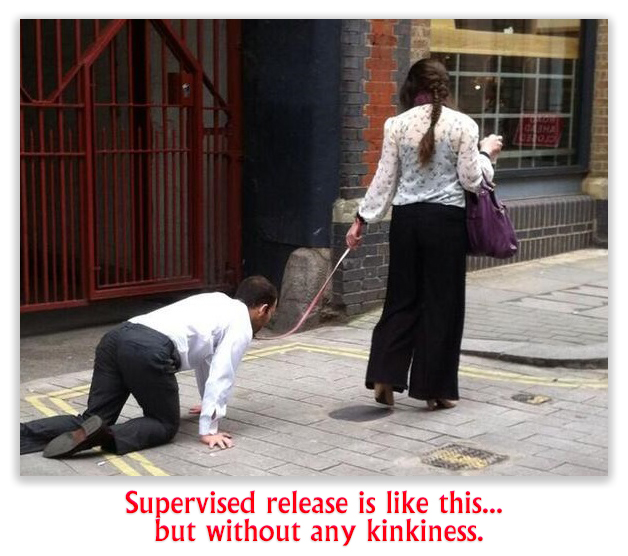We post news and comment on federal criminal justice issues, focused primarily on trial and post-conviction matters, legislative initiatives, and sentencing issues.

NEWS OF THE WEIRD
What’s Done is Done: In the 1st Circuit, Junito Melendez was denied a First Step Act § 404 sentence reduction under the Fair Sentencing Act (FSA). Junito finished his prison sentence in 2007 and got off supervised release three years later. Unfortunately, after ten years as a free man, he is now facing a new drug conspiracy charge.
 Therein lies the problem. Junito was released from his prior 109-month sentence within 15 years of the current conspiracy charge, so he faces a mandatory 10-year minimum sentence under 21 USC § 841(b)(1)(B). But if the prior sentence were to be changed consistent with the FSA, his release date would have been much earlier, and it would thus have fallen well more than 15 years before the current case. Had that been the case, he’d be facing no mandatory minimum now.
Therein lies the problem. Junito was released from his prior 109-month sentence within 15 years of the current conspiracy charge, so he faces a mandatory 10-year minimum sentence under 21 USC § 841(b)(1)(B). But if the prior sentence were to be changed consistent with the FSA, his release date would have been much earlier, and it would thus have fallen well more than 15 years before the current case. Had that been the case, he’d be facing no mandatory minimum now.
The 1st Circuit turned him down, holding that the word “release” in 21 USC § 802(57), which defines a “serious drug felony,” focuses on the “historical facts of a defendant’s sentence when determining whether § 802(57)‘s definition is met.” Regardless of what a different, shorter sentence might have yielded, the historical fact is that Junito was released in 2007. What’s more, the Circuit said, “Congress used the phrase ‘serious drug felony’ in the statute, signaling its intent for the backward-looking language of § 802(57)… to apply to the 10-year mandatory minimum.”
There just ain’t no shortening a sentence that’s already completely in the past tense.
![]()
I Should Have Been Watching Him While He Was Watching Me: Jason Sheppard, on supervised release after a drug sentence, discovered that his girlfriend had developed a cozy “personal relationship” with his probation officer, one Jeff Sciarrino. That’s one way to keep tabs on your supervisee, we suppose.
[Read the salacious details here]
Needless to say, the discovery did not enhance Jason’s relationship with his girlfriend. They broke up over her cheatin’ heart.
 In his grief, Jason moved for early termination of supervised release under 18 USC § 3583(e), arguing that the breakup “was negatively impacting his rehabilitation, thereby undermining any utility in continued supervision.” Jason made the rather obvious claim to the district court that “the probation officer was never concerned with [his] rehabilitation and appears to use his position for his own personal interests.”
In his grief, Jason moved for early termination of supervised release under 18 USC § 3583(e), arguing that the breakup “was negatively impacting his rehabilitation, thereby undermining any utility in continued supervision.” Jason made the rather obvious claim to the district court that “the probation officer was never concerned with [his] rehabilitation and appears to use his position for his own personal interests.”
The district court denied Jason’s motion, and last week the 3rd Circuit agreed. It held the District Court acted within its discretion to conclude that Probation Officer Sciarrino’s amorous misconduct “has little to do with whether Sheppard should continue under the supervision of a different officer.”
The Circuit criticized the District Court, however, for holding that the PO’s misconduct “actually undermines” Jason’s motion for early termination, because the upset may interfere with Jason’s mental health treatment.” The Circuit said, “the District Court’s order includes an inference that Sheppard is responsible not only for his own conduct, but also must shoulder any and all negative repercussions from the misconduct of his probation officer. This inference is improper… when evaluating a motion for early termination, a district court, particularly in the absence of holding an evidentiary hearing, may not impute a probation officer’s alleged improper actions to a defendant serving a term of supervised release, so as to justify continued (or additional) rehabilitative oversight.”
Nevertheless, the Court was not very happy with the U.S. Probation Office:
A probation officer’s communications of such a “personal” nature with an assigned defendant’s significant other are not only entirely inappropriate and unprofessional, but they also undermine the primary objective of supervised release – i.e., “to facilitate the integration of offenders back into the community rather than to punish them.” It also challenges the role of probation officers as trusted government officials who, in performing their duties, are “supposed to have in mind the welfare of the probationer…” In Sheppard’s case, his probation officer implicated Sheppard’s personal life in his own — and to such a degree that, according to Sheppard, it caused him to break up with his live-in girlfriend, with whom he considered to be in a “lifelong commitment.” If this is not the antithesis to assisting Sheppard in transitioning back into the community, and having his “welfare” in mind, we do not know what is.
 In all candor, I am constrained to note that even when Probation Officers act appropriately, they provide little benefit to supervisees beyond what Probation Officer Lothario provided to Jason. Supervised release is largely a snare for the unwary supervisee, with a sorry record of violating about one of three post-release folks entrusted to the Probation Office’s care.
In all candor, I am constrained to note that even when Probation Officers act appropriately, they provide little benefit to supervisees beyond what Probation Officer Lothario provided to Jason. Supervised release is largely a snare for the unwary supervisee, with a sorry record of violating about one of three post-release folks entrusted to the Probation Office’s care.United States v. Melendez, Case No 20-1575, 2021 U.S.App. LEXIS 31858 (1st Cir., October 22, 2021)
United States v. Sheppard, Case No 20-3088, 2021 U.S.App. LEXIS 32722 (3d Cir., November 3, 2021)
– Thomas L. Root

